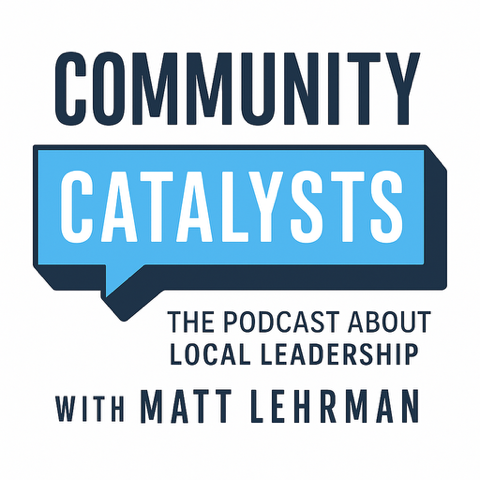Insights from the May Local Leadership Chat
The Quiet Sacrifices of Faithful Leadership
A Conversation Among Civic Leaders
In May’s Local Leadership Chat, civic leaders from across the country gathered to explore a rare, but meaningful question: What happens when our faith informs our public service? Not as a political platform, but as a deeply personal compass—shaping how we show up, how we decide, and how we lead.
When Faith Informs Public Service
Again and again, a striking theme emerged: leadership, especially when grounded in faith, often takes the form of sacrifice. Not just of time or convenience, but of ego, judgment, certainty, and self-righteousness. These quiet, often invisible acts don’t always make headlines, but they frequently reflect the deeper values—love, humility, and service—that both faith and public life call forth.
One council member spoke of a moment when fiscal responsibility and moral conscience were in direct conflict. The policy in question had real financial implications for the city, but it also affected vulnerable residents in a deeply personal way. Faced with pressure from both sides—including from within their own faith community—the leader described choosing to act not out of political calculation, but from a conviction rooted in service and compassion.
A mayor described the tension between spiritual purpose and civic responsibility. In their words, civic decisions may be temporary, but the spirit in which those decisions are made—fairness, love, humility—carries lasting weight. Another leader echoed the idea, calling attention to the “opportunity cost” of public service: not just the hours spent in meetings, but the emotional energy spent trying to do the right thing in ways that honor both faith and public trust.
Humility as a Guiding Principle
Rather than using faith as justification for dogma, these leaders framed it as a call to humility. A council member who also serves as a pastor said it best: the real sacrifice is not just in giving time or casting votes—it’s in leading without making it about yourself. That means fixing the pothole in someone else’s district. Listening without defensiveness. Loving people whose values may be different from your own.
Moments of Moral Dissonance
It’s not always easy. In fact, some spoke about moments when the law pointed one way, and their conscience pointed another. Others reflected on the struggle of staying true to their faith without alienating constituents who believe differently. And yet, the shared commitment remained: to lead in ways that bring people together, not push them apart.
Whether or not you consider yourself a person of faith, the takeaway is universal: Leadership rooted in humility is powerful. It reminds us that trust is not won through dominance or credentials but through sacrifice. Through the daily discipline of choosing grace over grievance. Service over spotlight.
Whether you call it calling, conscience, or conviction, public service asks something of us. Not just what we will do, but what we are willing to give up.
That’s the quiet sacrifice of faithful leadership. And it’s exactly the kind our communities need now more than ever.
A Note of Thanks and an Open Invitation
Deep gratitude to the local leaders from across the country who joined the May Local Leadership Chat and contributed to such an honest, thoughtful, and inspiring conversation. Your willingness to reflect, wrestle, and share openly is what makes this space so meaningful.
Special thanks to Mayor Steve Trivett of Ashland, Virginia, for suggesting the topic that guided this month’s discussion. His thoughtful question about the role of faith in public leadership sparked a dialogue that resonated deeply.
And special thanks to Rev. Audrey Hartness-Reese (Westminster, South Carolina) and Pastor John W. London (Irondale, Alabama) for joining the conversation. Both serve not only as faith leaders in their communities but also as members of their respective City Councils, and each has previously shared their unique perspectives as guests on the Community Catalysts podcast.
The Local Leadership Chat is held monthly as a virtual gathering place for elected, appointed, staff, and nonprofit community leaders—anyone working to strengthen their community through public service. Each month features a different topic—always relevant, always real—and invites participants to bring their questions, experiences, and insights into the conversation.
If you serve your community and seek a place to connect, reflect, and grow alongside others who do the same, you are warmly invited to join us in June and the months ahead.
Did you miss the April Local Leadership Chat? Read the synopsis of last month’s conversation: When Words Collide



